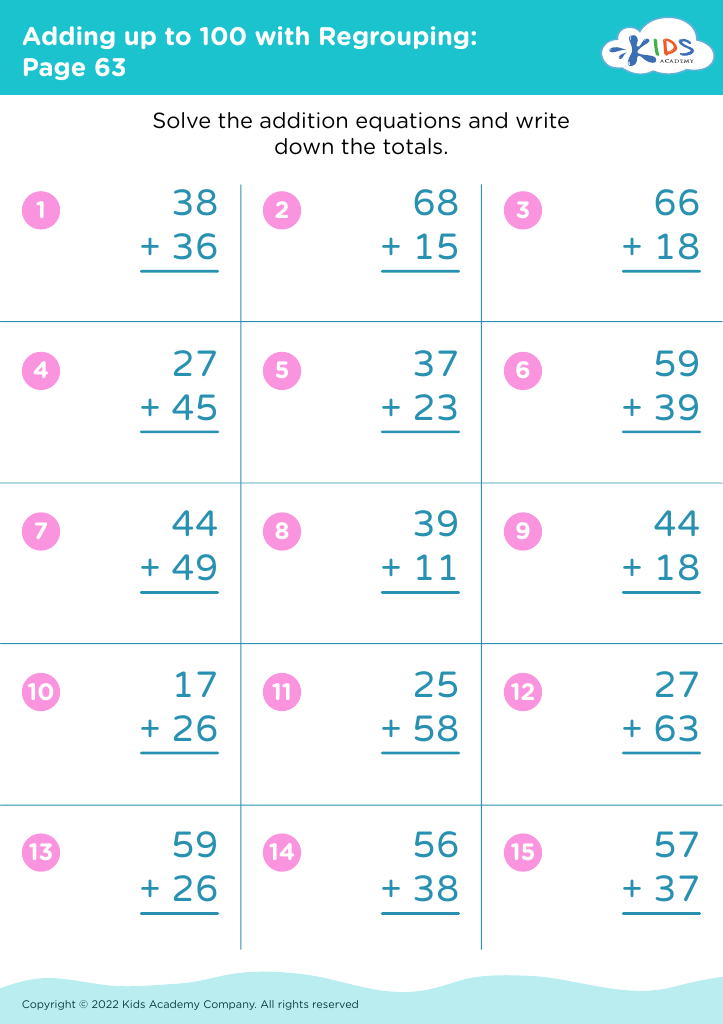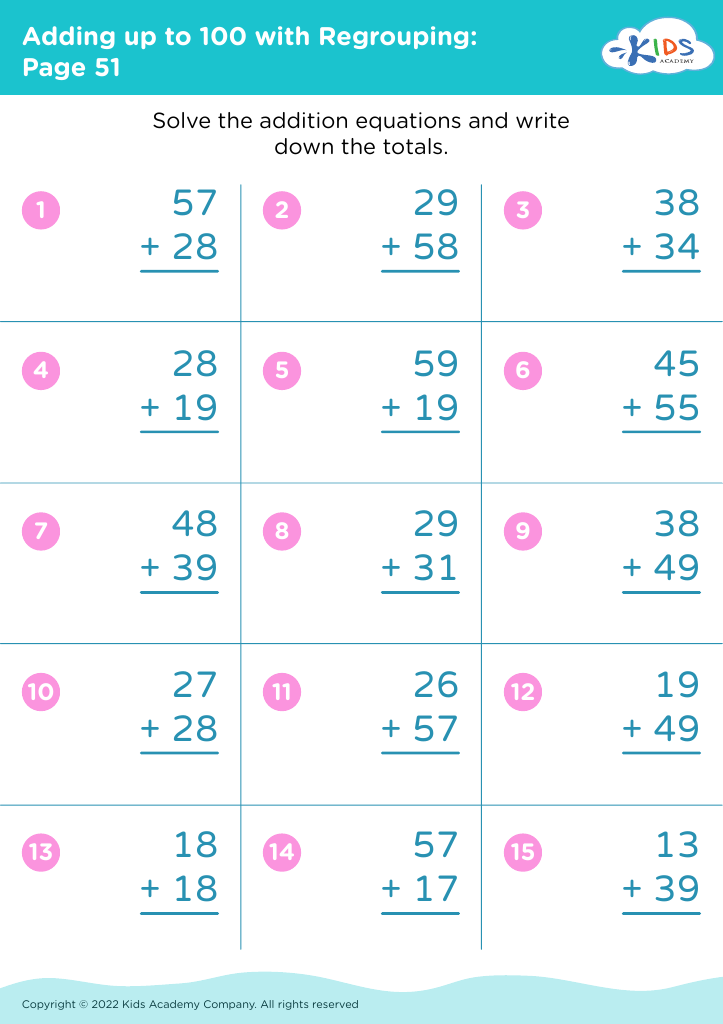Practice problem-solving Adding up to 100 Worksheets for Ages 4-8
3 filtered results
-
From - To
Unlock your child's mathematical potential with our "Practice Problem-Solving: Adding up to 100" worksheets! Designed specifically for ages 4-8, these engaging and interactive resources help young learners master addition through fun problems that reinforce essential skills. Each worksheet is tailored to enhance critical thinking, boost confidence, and encourage a love for math. Your child will enjoy tackling a variety of engaging scenarios that make learning enjoyable. Perfect for both home and classroom use, our worksheets ensure that practicing math becomes an exciting adventure. Give your child a head start in problem-solving and watch their skills flourish as they add up to 100!
Parents and teachers should prioritize practice problem-solving activities that involve adding up to 100 for children aged 4-8 because these foundational skills set the stage for a child's mathematical understanding and overall cognitive development. At this age, children are naturally curious and enthusiastic about learning, making it an ideal time to introduce structured problem-solving exercises. Practicing addition helps reinforce number sense, which is crucial for more complex math later on.
Engaging in these activities also hones critical thinking and reasoning skills. Children learn to analyze, strategize, and explore different ways to combine numbers, which fosters analytical skills beyond mathematics. Additionally, problem-solving exercises encourage perseverance. As children encounter challenges, they develop resilience and the skills to try different approaches, promoting a growth mindset.
Furthermore, interactive and playful problem-solving activities can strengthen the bond between parents and children, or teachers and students, making learning a collaborative experience. This investment not only benefits academic performance but also nurtures social-emotional skills. Ultimately, by integrating these essential practices into learning, parents and teachers equip children with tools and confidence that are vital for their academic journey and everyday life.






%20(1).jpg)











